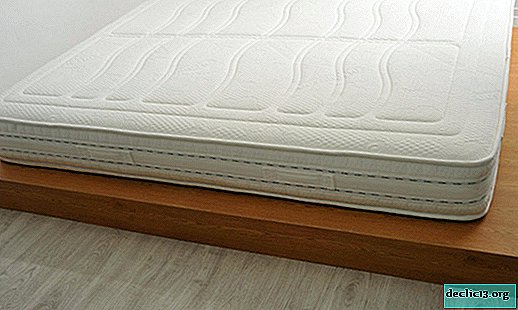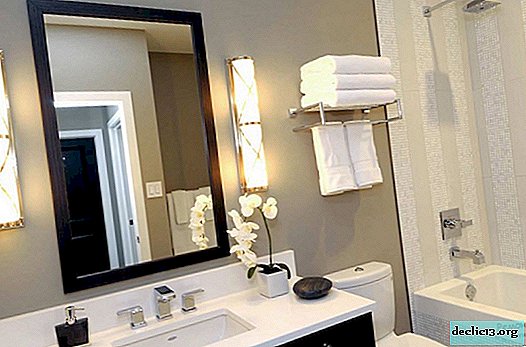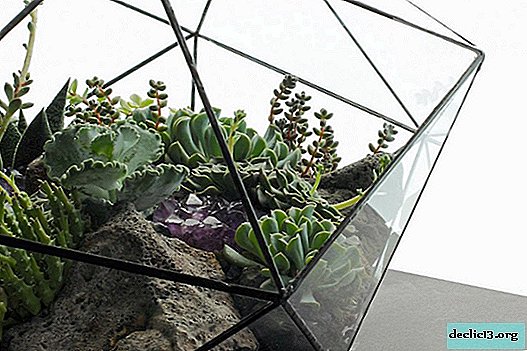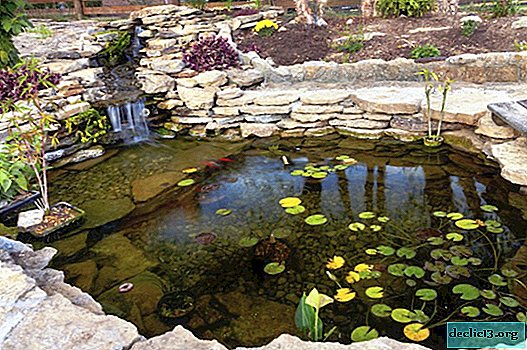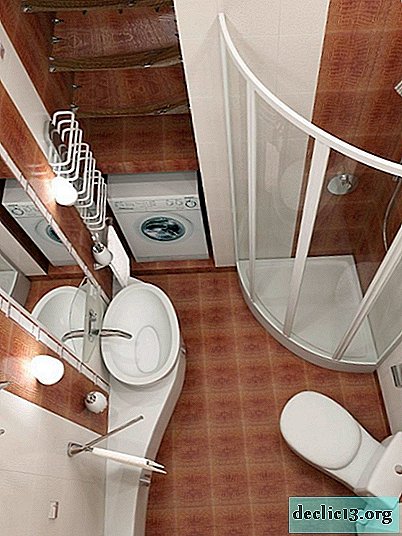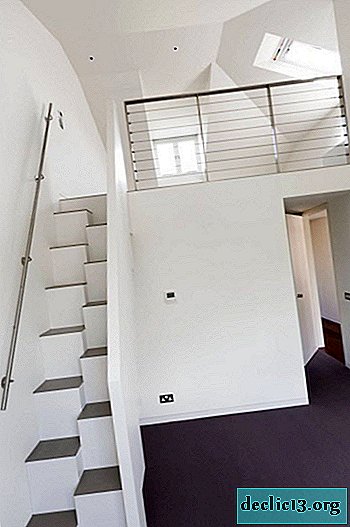Library furniture review, basic design requirements
Libraries occupy an important place in the educational process. Tables, cabinets and racks designed for them are different from ordinary ones. Products must comply with the specifics of work in an educational institution. Furniture for the library should arouse interest among visitors, as well as the desire to visit it again and again.
Features
Furniture and equipment for the library have the following features:
- They should keep books, newspapers and magazines for a long time. That is why the interior items in the library are made of modern high-quality materials. This prevents the appearance of fungi, pests, which affect the condition of books in the conditions of their long-term storage;
- Systematization of book editions, disks, audio tapes, video tapes. Library furniture is quite spacious, it allows you to freely publish publications. They are arranged in alphabetical order, according to the thematic principle, which facilitates the search for the necessary book, thereby prolonging its service life. Quickly find the right edition help models equipped with wheels. These include rotary display cases;
- Demonstration of books, CDs, audio and video cassettes. Furniture is open access or equipped with glass sashes. This allows you to demonstrate new items and exhibition items.
Varieties
Library furniture includes racks, cabinets, tables, chairs, display cases, stands. All of them differ in materials, sizes, shapes, color design. A variety of models allows you to use them in different educational institutions, as well as in an apartment or house. Classic furniture is suitable for many interior styles.
Rack
Library furniture such as shelving is often used. They are:
- With an open access system - one-sided, two-sided are designed to store and display books. The first models are often used in reading rooms, they provide access to print media on the one hand. Bilateral products can significantly increase their capacity. Models differ in size and number of shelves;
- Archival - racks are used to store books. For rare prints, shelving is available with lockable doors. This allows you to save books, as well as protect them from exposure to light;
- Demonstration - models with open access are equipped with inclined shelves;
- Modular - such products allow you to install racks of any length, depending on the geometry of the room;
- Book - shelves are single, double-sided. They are designed to accommodate print media, can be equipped with straight or inclined shelves.
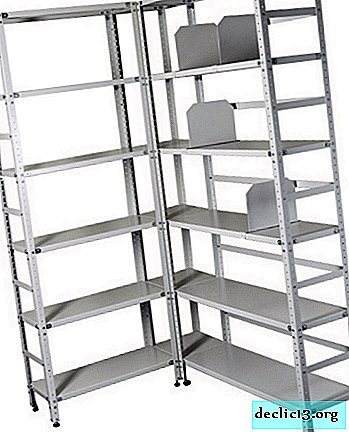 Modular
Modular Archival
Archival Book
Book Demo
Demo Open system
Open systemCupboard
The library involves the use of the following types of cabinets:
- For magazines - standard models are made in 10 or 15 cells. Magazines are placed on the surface of the doors, inside the cells there is a place for their storage;
- For newspapers - for periodicals use cabinets with shelves, located at an angle, for easy viewing. Filing A2 format publications are located in drawers. The facades of newspaper cabinets are straight and radial. Standard models contain 5, 6, 9 boxes;
- Formal - they are designed to store special library registration cards - forms. Hence their name. The standard model is designed for 8 boxes. In addition, there are products on 16, 24, 32 boxes. Formal cabinets can be installed on supports made of metal or chipboard. Cabinets are stationary or mobile. The latter are designed for 3, 6, 9, 12 boxes, often installed together with the departments. In addition, stationary models are found separately standing or built-in;
- Catalogs - used for alphabetical and systematic catalogs. Models are manufactured on a modular basis. Thus, cabinets can consist of one or two modules. The number of drawers for this type of furniture: 8, 10, 16, 20, 24, 32, 40. Products are installed on a metal frame or cabinet. The drawers are equipped with a mobile card stop, a metal rod, and a pull-out table.





Table and chair
Tables are an integral part of library furniture. They are:
- Readership - models are single, double, multi-seat, allow you to compactly place tables in the library. Furniture can be made on supports made of metal or sheet material. In the latter case, chipboard and MDF are used. Metal supports are found, X-shaped, L-shaped, L-shaped, P-shaped. The shape of the tables is usually rectangular, but also curly products;
- Transformer tables - are popular due to their convenience, different location options. Forms of transforming tables: trapezoid, parabola, wave. Often a model is made with wheel supports, which makes it easy to install them in the right place, to make products in the form that is most convenient for group work. Mobile tables are rectangular, oval, pentagonal;
- Computer - they must ensure the comfortable work of visitors. Models are equipped with a special compartment for placing the system unit, a sliding panel under the keyboard;
- Multiple - they are necessary for more convenient placement of visitors at the tables. They differ in size, shape. There are rectangular, oval, radial.
Chairs are made adjustable and unregulated. The first are more convenient and functional. Products can be with a soft back, a seat, with or without armrests. Chairs are also available, which transform into a small staircase. Such chairs are especially needed in the library with tall cabinets and shelving. Examples of products can be seen in the photo.





Armchair
Library furniture such as an armchair is also used. Models with adjustable seat height, backrest level provide comfortable conditions for work and training. Mobile seats are equipped with wheels, which also affects convenience. Orthopedic models adapt to each person’s pose. Armchairs come with or without armrests.
Luxurious products made from natural materials are more suitable for the home. An armchair made of solid wood with genuine leather upholstery will be an excellent addition to the library in a classic style. They look rich, elegant. In addition, the models can be used indoors in a modern interior style.





Stained Glass and Showcase
The showcase is the visiting card of the library. Such furniture should arouse the reader’s interest and desire to visit it again. Showcases are different and differ in structural features. There are single and bilateral models.
Some models are equipped with wheels. Rotary display cases allow you to consider book editions, being in one place. The furniture is very convenient to use.
Products come with open and closed storage systems. Open models are equipped with shelves. Glass display cases are essential for better displaying books. There are models with one, two or more wings. Wall and floor stained-glass windows are also often used in libraries. They are closed and half-closed. Models are equipped with straight or inclined shelves. Stained-glass windows are used to demonstrate new books, important works are placed on inclined exhibition boards. The rest of the literature is located on the shelves between the shields. Such furniture is very convenient for the reader, and it also fits perfectly into the interior of any library.




Information stand
The information stand is an invariable advertising attribute of the library. It contains the necessary information for visitors: basic information about the library, rules of conduct, work schedule, various announcements, invitation cards. Thus, it should be located in the most visible place and be as accessible as possible.
Information stands can be placed on the floor or on the wall. The sizes of the products are different, which allows you to choose the most suitable option for any library. Wall-mounted models are equipped with special hinges for fastening. Often products are equipped with plexiglass pockets for placing information. Stands are made mainly of plastic. Floor stands have metal, plastic legs. There are mobile, solid and stationary models.



Multimedia
For the educational and entertainment process in modern times, not only books are used, but also educational materials on disks, audio and video cassettes. Also in the age of high technology in libraries, various digital techniques have become widespread. For its placement, special furniture is needed, which should provide quick and convenient access to information resources, and facilitate the search for the necessary information.
In modern libraries they use:
- Shelving, display cases and cabinets with special shelves for placing disks, audio and video cassettes. Library furniture is necessary for the storage and open access of visitors. In the first case, models are selected with additional drawers where archive funds are located. Racks are equipped with mounts for disks for more reliable storage;
- Wall slides for laying out discs;
- Racks and stands for demonstration of new products;
- Tables-stands for laptop or projector;
- A variety of furniture complexes. For example, two computer desks with a cabinet located between them, which is equipped with drawers for storing disks.
Criterias of choice
Cabinets should be functional, convenient so that visitors can easily find all the information they need. In addition, home decoration can be original, distinguish one library from another.
With special care you need to approach the choice of furniture for the children's library. Products should be comfortable. An important point is the external design of furniture. Children's cases, racks are produced in a wide variety of options. For example, it can be furniture in the marine theme. The contrasting combination of bright blue and white, as well as the use of additional decorative elements such as an anchor and steering wheel, will attract the attention of children.
Pay attention to the quality of furniture. There should be no sharp corners, rough edges, especially if items are selected for the children's library.
Another point that you need to pay attention to when choosing furniture is the material of their manufacture. Archives in the library, reading rooms are considered objects of increased fire hazard. Cabinets, racks, should be made of high-quality, safe materials, preferably refractory. All interior items must have certificates.





Recovery and Care
Natural wood furniture care:
- You can not install cabinets and tables, racks near the battery;
- Moisture has a destructive effect on the tree, so the temperature in the room should not be lower than +15 ° C, air humidity - 65%;
- It is recommended to regularly wipe the furniture, use only special tools for this;
- Under the influence of light, wood can change color. It is better to place interior items so that they are not exposed to direct sunlight;
- To mask scratches and cracks use a special wax;
- To restore the former shine with polishing.
Metal cabinets and racks are considered more durable and easier to care for, unlike wooden furniture:
- For regular care use only soft rags, sponges. Abrasive products will not work, as they can leave scratches on the surface;
- A solution of ammonia will help with darkening on metal furniture;
- Interior items must be protected from mechanical damage.
Considering the features of furniture, its diversity, care rules, you can choose tables, chairs, cabinets, racks that will correspond to the intricacies of working in the library. At the same time, they will create a cozy, calm atmosphere in the room, which readers will enjoy visiting.





Photo













